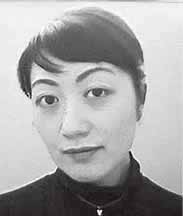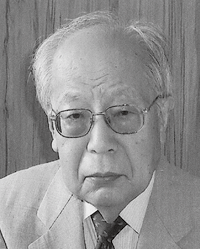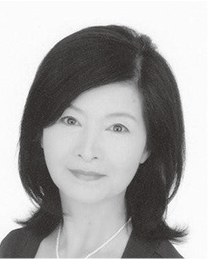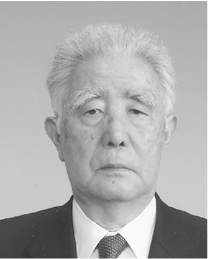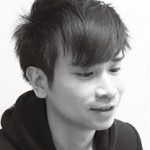H氏賞と現代詩人賞
第43回現代詩人賞 秋山基夫氏 詩集『花下一睡』
委員会を実施いたしました。現代詩人賞の北川朱実選考委員はインフルエンザにより意見書の提出による選考委員会への参加となりましたが、瀬崎祐現代詩人賞選考委員長に意見書を活かしていただき、両賞の選考委員の皆様に審議を尽くした選考を行っていただきましたことを担当理事として感謝申し上げます。日本現代詩人会の主要な事業である詩集賞の受賞者を無事決定することができました。地下鉄サリン事件から三十年目、東日本大震災から十四年目の今年三月に、詩がしっかりと書かれ続けていたことを、また詩にしか果たせない役割があることを、選考委員会という場での委員の方々の真剣な意見交換を通じて、改めて痛感いたしました。
贈呈式は6月1日(日)午後1時より私学会館アルカディア市ヶ谷にて開催される「日本の詩祭2025」で行われます。
H氏賞・草間小鳥子
[略歴](くさま・ことりこ)
1987年横浜市生まれ。日本女子大学文学部英文学科卒業。第14回北日本児童文学賞最優秀賞、第27回詩と思想新人賞受賞。2019年、小詩集『ビオトープ』(資生堂花椿文庫)を発表し、翌20年、第一詩集『あの日、水の森で』(土曜美術社出版販売)を上梓。他の詩集に『源流のある町』(七月堂)がある。映画主題歌やプロダンスリーグへの詩の提供他、音楽家・役者とのポエトリーリーディングユニット「PoeticMicaDrops」として、作品の発信も行っている。

現代詩人賞・秋山基夫
[略歴](あきやま・もとお)
1932年岡山市の日赤病院で生まれ、父の転職に従い神戸から各地を転住し、45年夏以降岡山市住。岡山大学入学後、小説、詩を書き、内田栄一、三沢浩二、荏原肆夫、相良平八郎らを知る。詩誌「詩脈」などに参加。65年第1詩集『旅のオーオー』。60年代末から片桐ユズル、有馬敲、中山容らと〈オーラル派〉として自作の朗読を積極的に行う。90年代以降、何らかの〈コンセプト〉をもつ詩集を20冊ほど出した。評論は『詩行論』、『引用詩論』、『文学史の人々』など。
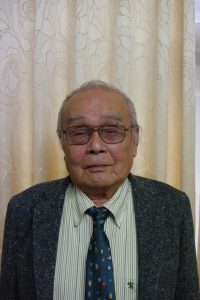
H氏賞 受賞のことば 草間小鳥子
何度でもひっくり返る
首都圏に生まれ、国語教育に力を入れる学校を出て、定職がある。地域的にも、文化的にも、経済的にも、恵まれていたと思う。生活しながら詩を書くことがゆるされ、詩集を出版することができ、賞までいただけたことは、巡り合わせやタイミング、運や縁によるところも大きく、自身の力、ましてや才能などといったもののためではない。思い上がらないよう、気を引き締めたいと思う。その証拠に、詩を書き、読むほどに、自分の未熟さや学びの足りなさをひしひしと感じるのだから。
ただひとつ、詩集『ハルシネーション』において、自信を持って語れるものといえば、「屈してたまるか」という三つ子の魂である。
生まれた町の道の模様をよく覚えているのは、よく道端にひっくり返っていたからだ。「かわいいね」と声をかけられれば「かわいくない!」と足を踏ん張り、解せぬ、と思えばひっくり返り泣き喚いた。複雑な感情を言語化できず、だからもちろん大人には伝わらず、それでも長いものに巻かれてたまるかと思えば、どこででもひっくり返った。思えば、反抗できることも信頼に護られている証。やはり恵まれていた。何とも恥ずかしい話だが、商店街で大の字になったわたしを見た酒屋のおかみさんが、「この子、骨があるよ」と呟いたのだとか。東京大空襲を生き延び、常に国というものを疑い続けた祖父母や、社会に幅を利かせるヒトよりも小さな動物を主役に、と徹底して物語を書く母、皆が揃って右を向く時は必ず左を向いてみせる変わり者の父の影響も多分にあるのかもしれない。とにかく、共感性の暴力のようなものに押さえつけられそうになると、今でも全身全霊で反抗したくなる。
言語を習得してからも、ひっくり返りたくなる問題は否応なく立ちはだかる。多様性や包摂性の概念が広まり、マイノリティの声がとりこぼされにくい時代となりつつあるが(一部逆行の流れもあり、非常に懸念している)、依然社会は人間中心で、強い人間中心で、利権が生き物の命を奪う。たかが詩人に何ができるとも思うが、身近な感情──花を見てやすらぐ心も、ふとした気づきに色づく風景も──のすべてが、この世界の、ままならない社会の一部であることに目を向けていたい。多くを見落としていることはわかっている。それでも目を見開き、逸らさず、想像したい。
それらを阻もうとする力に、偏見に、無力感に、嘲笑に、「屈してたまるか」。そんな思いで書き上げたのがこの詩集で、現時点のわたしの、ひとつの到達点である。時に強い言葉も使っており、詩に癒しや励ましを求める読者を遠ざけてしまうのではないかという不安もあった。それでも、今回H氏賞に推挙いただけたこと、そして選んでいただけたことはこの上なく光栄で、幸福なことであり、詩に対してご意見やアドバイスをくださった方をはじめ、ご関係各位には深く感謝申し上げます──と書くわたしの背中を、足を踏ん張った三歳のわたしが鋭くにらみつけている。
これからは、怒りや抵抗の先にあるものについて考えていきたい。
詩集賞決定までの経緯
〔開票理事会〕
H氏賞と現代詩人賞の会員投票を受け、2月1日(土)早稲田奉仕園で開票理事会を開き、投票管理委員の柊月めぐみ・生駒正朗の各氏の立ち会いのもとに開票集計が行われた。
[第75回H氏賞選考]
会員総数960名、H氏賞への投票総数288票(有効票217、白票56、無効票9)投票率30・00%であった。
会員投票上位8冊を選ぶにあたり、七位が3冊同数となったため、この7位までの9詩集を候補詩集とした。
集計後、別会場で第1次選考委員会が開かれ、選考委員推薦詩集4冊が提示され、検討の結果3冊が候補作に加えられた。
①林美佐子『ピコピコハンマー』(詩遊社)11票
②草間小鳥子『ハルシネーション』(七月堂)10票
③雪柳あうこ『骨を撒く海にて、草々』(思潮社)8票
④宮田直哉『ある風景』(書肆子午線)7票
④角朋美『透明な遠くへ』(潮流出版社)7票
④市川恵子『世界にあるもの』(文治堂書店)7票
⑦佐野亜利亜『女子の掟、もしくは』(文化企画アオサギ) 6票
⑦橘しのぶ『水栽培の猫』(思潮社)6票
⑦丸太麻保子『カフカを読みながら』(思潮社)6票
次点 村岡由梨『一本足の少女』(七月堂)5票
原島里枝『常夜灯』(ライトバース出版)5票
古道正夫『S村点描』(コールサック社)5票
〈選考委員会推薦候補詩集〉
漆原正雄『風を訪うまで』(ジョバンニ書房)
山内優花『きせつきせつ』(和中書店)
寺道亮信『乳既』(七月堂)
以上、全12冊が候補詩集に決定。
【第75回H氏賞選考委員】
◎根本明(選考委員長)、相沢正一郎、小笠原眞、篠崎勝己、田中裕子、山中真知子、*野村喜和夫 (*は理事)
立会人 担当理事 渡辺めぐみ
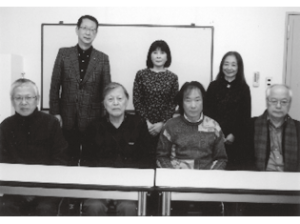
現代詩人賞 受賞のことば 秋山基夫
現代詩人賞に小著『花下一睡』が選ばれたことは、生涯の大きな喜びです。会員の皆様、選考に当たられた皆様に深く感謝申し上げます。
大学2年の冬、詩を書き始め、参加した詩誌の名前は「日本正統詩派」というものでした。三沢浩二、坪井宗康、有元利行、守安正文らがいました。彼らは一学年うえで、わたしを含めてみな同じ高校の出身者でした。彼らは『荒地詩集』(1951年版)の影響下にいました。詩とは何か、いまどのように書くべきか、わたしは小さくなって彼らの意気軒高たる議論を聞いていました。T・S・エリオットの批評を訳した北村常夫教授がいらっしゃって、英文科の守安などからも知識が入ってきていたのでしょう。「列島」、「日本未来派」、「地球」、「時間」など多くの詩的主張があった時代でした。
わたしは、おそらく最初から、詩人とは、①詩とは何かを問い、②いまどのような詩を書くべきかを問うべきだと考える環境にいたのでした。①は本質論。②は状況論。①を問うためには、詩が何であったかを問わねばなりません。つまり、それは詩の歴史を知ることです。もちろん、最初からこんな風に理詰めで考えていたのではありません。自覚的に詩を書く人は、世界の古典を読むべきだ、そういう言葉をエリオットが言ったということを知っていました。以降だらだら時間が過ぎて、1980年代から古典とも関係して詩を書くようになりました。「土佐日記」を使って現在を書く長編詩『ひな』は20年以上かけて本になりました。
古典とどのような関係を持つべきか。その核心は、どうすれば過去の偉大な詩人たちの詩を現在の詩として読むことができるか、という問いにあるかもしれません。この問いは、おかしなことですが、逆から言えば、どうすれば現在のわたしの詩をかれらにわかってもらえるか、ということになります。理屈でいえば、そういうことなると思いますが、それがわたしの頭に時として出現して、わたしを途方に暮れさせました。さいわい、わたしには蛮勇という強い味方があったので、それが振るわれて、最近の何冊かの詩集は書かれたのかもしれません。古典和歌の、たとえば百人一首など、どんなに巧みに口語化しても、何か物足りません。歌は歌としてすでに完結した表現だからです。ということで、ある晴れた日に、それではこちらが引用されればいいのではないか、とたわけた妄念があたまをかすめ、それにしたがったのかもしれません。
広範な詩的世界の中に口語自由詩あるいは現代詩がますます確かな位置を占めること願いつつ、再度お礼を述べて終わりといたします。ありがとうございました。
[第43回現代詩人賞選考]
会員総数960名、現代詩人賞への投票総数288票(有効票232、白票27、無効票7)投票率30・00%であった。
会員投票上位8冊を選ぶにあたり、7位が3冊同数となったため、この7位までの9詩集が候補詩集として選考委員会へ申し送られた。
集計後、同会場で第1次選考委員会が開かれ、選考委員推薦詩集3冊が提示され、検討の結果3冊とも候補作に加えられた。
①佐川亜紀『その言葉はゴーヤのように』(土曜美術社出版販売)23票
②田村雅之『魂匣』(砂子屋書房)11票
②春木節子『行方しらず』(砂子屋書房)11票
④たかとう匡子『ねじれた空を背負って』(思潮社)10票
⑤河野俊一『ストーマの朝』(土曜美術社出版販売)9票
⑥吉田義昭『海と重力』(思潮社)8票
⑦岩木誠一郎『声の影』(思潮社)7票
⑦冨岡悦子『斐伊川相聞』(書肆子午線)7票
⑦瀬野とし『まわれ まわれ』(編集工房ノア)7票
次点 網谷厚子『ひめ日和』(思潮社)5票
秋山基夫『花下一睡』(七月堂)5票
清岳こう『脳神経外科病棟505』 (思潮社)5票
〈選考委員会推薦候補詩集〉
秋山基夫『花下一睡』(七月堂)
篠崎勝己『死ねない魂のための音楽』(龍詩社)
眞神博『精神の配達』(風詠社)
以上、全12冊が候補詩集に決定。
【第43回現代詩人賞選考委員】
◎瀬崎祐(選考委員長)、海埜今日子、加藤廣行、北川朱実、浜江順子、北條裕子、*浜田優(*は理事)
立会人 理事長 塚本敏雄
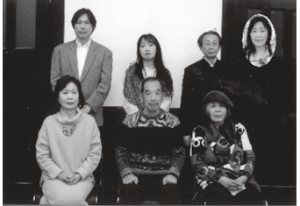
◆3月1日(土)午後1時より第2次選考委員会が開かれ、候補詩集より頭書の2詩集がそれぞれの賞に選ばれました。この詳細については後日発行される『現代詩2025』に掲載されます。
文責 担当理事・渡辺めぐみ
第74回H氏賞 尾久守侑氏 詩集『Uncovered Therapy』
第42回現代詩人賞 粕谷栄市氏 詩集『楽園』
新型コロナウィルスが五類となり、まだコロナ禍が完全に去ったわけではありませんが、昨年より落ち着いた状況で対面による詩集賞の選考委員会を実施いたしました。両賞選考委員の方々全員に一次選考委員会及び二次選考委員会にご出席いただき、十分に審議を尽くした選考を行っていただきましたことを感謝申し上げます。選考委員のお一人お一人の熱意のお蔭で日本現代詩人会の主要な事業である詩集賞の受賞者を無事決定することができました。
贈呈式は6月2日(日)午後1時より私学会館アルカディア市ヶ谷にて開催される「日本の詩祭2024」で行われます。
H氏賞・尾久守侑(おぎゅう・かみゆ)
[略歴]
1989年5月14日東京都生まれ。
東京都在住。慶応義塾大学大学院医学研究科博士課程修了。2016年、第1詩集『国境とJK』(思潮社)を上梓。その後、『ASAPさみしくないよ』、『悪意Q47』を上梓。第9回エルスール財団新人賞受賞。主な著書に、詩集のほか学術書として『偽音論』(金原出版)、『器質か心因か』(中外医学社)、『サイカイアトリー・コンプレックス 実学としての臨床』(金芳堂)ほか。
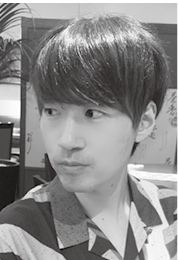
現代詩人賞・粕谷栄市(かすや・えいいち)
[略歴]
1934年11月9日古河市生まれ、
同地在住。早稲田大学第一商学部卒。「ロシナンテ」、「地球」、「鬼」、「歴程」同人を経て現在「森羅」同人。詩集に『世界の構造』(高見順賞)、『悪霊』(藤村記念歴程賞)、『鏡と街』、『化体』(詩歌文学館賞)、『鄙唄』、『転落』(芸術選奨文部科学大臣賞)、『遠い川』(三好達治賞)、『瑞兆』。
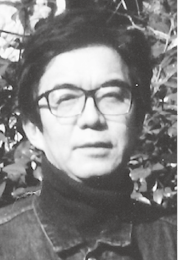
H氏賞 受賞のことば 尾久守侑
見つかるために隠れる
形式を問わず、なにかを表現すれば、そこにはどれだけ排除しようと思っても書いた人間の個が現れてしまう。個をどれだけ見せるのか、あるいは隠すのか、というグラデーションは、意識しない限りは著者本人の無意識に規定され、見せたい部分が現れ、隠したい部分が隠れることになる。これまでは、見せたいけれども、それよりも隠したい気持ちがずっと強く、隠すことが容易な形式である詩を選んでいたところがあるかもしれない。この『Uncovered Therapy』という詩集は、そういった認識に立つことから始まった。
精神科医をやりながら詩を書いていると知ると多くの人が、精神医学と詩がどのように繋がっているのかという疑問を投げかけてくることがしばしばある。私のなかには精神医学と詩を無関係なものにしておきたい気持ちがなんとなくあった。自分を露出しすぎてしまうことを恐れていたのかもしれない。無関係なはずはない。ただしそれは「どちらも言葉を使う」とか「言語化できない領域に関係する」などといった表面に見えた一般化できる関係ではなく、もっと個人的な私のなかにしかない繋がりである。
個を切り離し、精神科医という役割としてだけ患者に会うことができれば楽だが、治療関係という異常な人間関係を生き延びるのに、個をその場に差し出すことを避けられなかった。目の前の呼びかけに反射的に応じるとき、動いているのは役割としての自分ではなく個としての自分だからだ。10年医師をやって、私の個は患者一人一人との関係の影響を受けて不可逆に変質している。それがどういう意味を持つのか、私にはまだ分からない。
個の外側で、誰もが知る大きな出来事が起きている。今に限ったことではないが、個別には今しか起きていない。それに対して、うまく心を動かすことができない自分がずっといた。なんらかの媒体を通して知ったその〝大きな出来事〟たちは、遠い世界のバーチャルなものにしか思えなかった。一方で、その〝大きな出来事〟たちは巡り巡って目の前の患者の生活に、私の診療環境に影響を与える。私の個はむしろそちらに反応する。関係のなかに現出した、それぞれの個によって歪曲され語られたものこそが私にとっての〝大きな出来事〟の真実であって、十分では決してないものの、このことこそを『Uncovered Therapy』では記しておきたかったのかもしれない。
このたびは『Uncovered Therapy』という詩集にH氏賞という歴史のある大きな賞をいただき、誠にありがとうございました。ある意味で個を見せすぎた不安や罪悪感のようなものもあるなかで受賞の報をいただき、書き続けることに背中を押していただいたような思いでいます。ありがとうございました。
現代詩人賞 受賞のことば 粕谷栄市
この度は、思いがけなく詩集『楽園』により、現代詩人賞を受賞することになりました。全く、私たちの人生には何があるか、わからない。まさに「一寸先は闇」である。もっとも、今回は、闇どころの話しでない。全くその逆の光栄の至りであるけれど。
詩集『楽園』は、詩篇のほとんどが、五十年来の私の詩の知己である池井昌樹さんとの詩誌「森羅」に掲載されたものである。
「森羅」は、池井さんが、一人で、掲載の全篇を刻字して発行する同人誌である。最初は、池井さんと私の、現在は、高橋順子さんが加わって、三人だけの、仲間の同人である。
何しろ、一切が、池井さんの手造りの詩誌だから、発行の部数は百部だけである。多くの人々の知るものではなかったと思う。
したがって、「森羅」の私の作品について、私が、読者の感想を知ることはなかった。常に、活力に満ちて聞こえてくる池井さんの電話の声に励まされて、私は六年間『楽園』の詩を、「森羅」に書きつづけたわけである。
私に言えるのは、池井さんがいなかったら、今回の私の詩集は、存在しなかったということだけである。
第一詩集『世界の構造』以来、一貫して、私は、散文詩型による詩を書いてきた。詩集『悪霊』詩集『鏡と街』詩集『化体』詩集『転落』詩集『鄙唄』詩集『遠い川』詩集『瑞兆』全作品が散文詩型による詩である。
しかしながら、私は、未だ散文詩の可能性のほんの入口に立っているにすぎない。私たちの日本語は、かぎりなく豊穣で、陰影に満ちている。散文詩の未来も、豊かである。どの方向からも、私は、新しい世界を、模索することができるだろう。
しかし、私は、八十九歳である。もう、あまりにも時間がなさすぎる。思わず、老いの繰り言を口にしたくなるけれど。
無用の饒舌をやめにしよう。ここでは、私は、全てのみなさまに、ただ、お礼を申し上げればよいのである。
「現代詩人賞」ありがとうございました。
こころから、お礼申し上げます。
詩集賞決定までの経緯
〔開票理事会〕
H氏賞と現代詩人賞の会員投票を受け、2月3日(土)早稲田奉仕園で開票理事会を開き、投票管理委員の宮田直哉・福田恒昭各氏の立ち会いのもとに開票集計が行われた。
[第74回H氏賞選考]
会員総数992名、H氏賞への投票総数279票(有効票214、白票65、無効票0)投票率28・12%であった。 会員投票上位8冊を選ぶにあたり、8位が3冊同数となったため、この3冊を含めた10詩集を候補詩集とした。
集計後、別会場で第1次選考委員会が開かれ、選考委員推薦詩集6冊が提示され、検討の結果3冊が候補作に加えられた。
①佐峰存『雲の名前』(思潮社)22票
②井嶋りゅう『影』
(文化企画アオサギ)14票
③小川三郎『忘れられるためのメソッド』
(七月堂)6票
③水嶋きょうこ『グラス・サンド』
(思潮社)6票
③玄原冬子『福音』 (版木舎)6票
⑥深町秋乃『柔らかい水面』
(土曜美術社出版販売)5票
⑥麻生秀顕『パルスと円環』
(土曜美術社出版販売)5票
⑧根橋麻利『水辺の響き』
(潮流出版社)4票
⑧野口やよい『星月夜』
(版木舎)4票
⑧山田リオ『ときのおわり』
(青磁社)4票
〈選考委員会推薦候補詩集〉
嘉陽安之『朝をつくる』(思潮社)
尾久守侑『Uncovered Therapy』
(思潮社)
藤本哲明『attoiumani_nizi』
(思潮社)
以上、全13冊が候補詩集に決定。
【第74回H氏賞選考委員】
◎上手宰(選考委員長)、富沢智、峯
澤典子、中本道代、池田順子、藤田晴
央、*青木由弥子 (*は理事)
立会人 担当理事 渡辺めぐみ
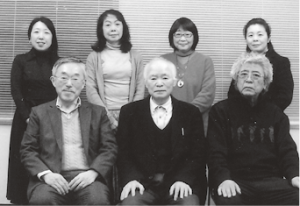
[第42回現代詩人賞選考]
会員総数992名、現代詩人賞への投票総数301票(有効票248、白票49、無効票4)投票率30・34%であった。
会員投票上位8冊を選ぶにあたり、7位が3冊同数となったため、この7位までの9詩集が候補詩集として選考委員会へ申し送られた。
集計後、同会場で第1次選考委員会が開かれ、選考委員推薦詩集6冊が提示され、検討の結果3冊が候補作に加えられた。
①こたきこなみ『ひとがた彷徨』
(思潮社)13票
②粕谷栄市『楽園』(思潮社) 11票
②水島美津江『更地』
(土曜美術社出版販売)11票
④松岡政則『ぢべたくちべた』
(思潮社)10票
④麻生直子『アイアイ・コンテーラ』
(紫陽社)10票
④硲杏子『残照・その後』
(土曜美術社出版販売)10票
⑦佐々木洋一『でんげん』
(思潮社)8票
⑦上手宰『二の舞』 (版木舎) 8票
⑦白井知子『ヴォルガ残照』
(思潮社)8票
次点 若宮明彦『瑪瑙屋』
(土曜美術社出版販売)7票
〈選考委員会推薦候補詩集〉
荒川洋治『真珠』(気争社)
岩佐なを『たんぽぽ』(思潮社)
広瀬大志『毒猫』(ライトバース出版)
以上、全12冊が候補詩集に決定。
【第42回現代詩人賞選考委員】
◎田村雅之(選考委員長)、岡野絵里子、廿楽順治、石田瑞穂、小林弘明、鈴木東海子、*春木節子 (*は理事)
立会人 担当理事 渡辺めぐみ
◆第二次選考委員会
3月2日(土)午後1時より第2次選考委員会が開かれ、候補詩集より頭書の2詩集がそれぞれの賞に選ばれました。この詳細については後日発行される『現代詩2024』に掲載されます。
文責 渡辺めぐみ
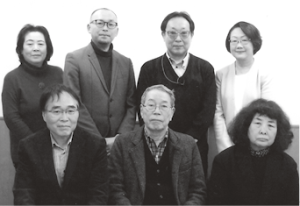
第73回H氏賞 小野絵里華氏 詩集『エリカについて』
第41回現代詩人賞 河津聖恵氏 詩集『綵歌』
新型コロナウイルス禍の下での詩集賞の選考も本年で四年目となり、当初の感染力が減衰しつつあるとは言え、高齢の選考委員も参集して頂く詩集賞選考には依然としてリスクをともなった。しかし、両賞選考委員ともにその責務をよく全うしてくださり、お陰をもって現代詩人会の主要な事業である詩集賞の受賞者を決定することができました。
贈呈式は6月4日(日)午後1時より私学会館アルカディア市ヶ谷で開催される「日本の詩祭2023」で行われます。
H氏賞・小野絵里華
[略歴](おの・えりか)
東京大学大学院 総合文化研究科
博士課程修了
2010年ユリイカの新人を受賞。
2022年エルスール財団新人賞。
2022年中原中也賞最終候補。
2023年第73回H氏賞受賞。
【詩集】
『トイレに神様なんかいない』
(私家版・2018年)
『エリカについて』
(左右社・2022年)
【歌集】
『金魚は炭酸水では生きていけない』
(私家版・2020年)
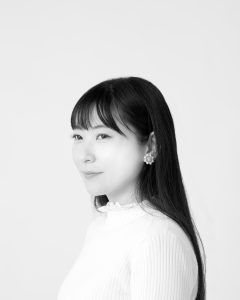
現代詩人賞・河津聖恵
[略歴](かわづ・きよえ)
1961年東京生まれ、京都在住。高校時代から詩を書き始める。京都大学文学部独文科卒。第23回現代詩手帖賞。詩集『夏の終わり』(ふらんす堂、第9回歴程新鋭賞)、『アリア、この夜の裸体のために』(同、第53回H氏賞)、『現代詩文庫183・河津聖恵詩集』(思潮社)、新藤凉子・三角みづ紀との連詩集『連詩 悪母島の魔術師』(同、第51回藤村記念歴程賞)。詩論集に『闇より黒い光のうたを―十五人の詩獣たち』(藤原書店)、『「毒虫」詩論序説ー声と声なき声のはざまで』(ふらんす堂、第21回日本詩人クラブ詩界賞)。
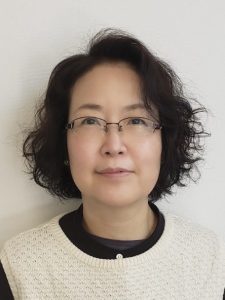
H氏賞 受賞のことば 小野絵里華
このたびは歴史あるすばらしい賞をいただき、ありがとうございました。受賞のお電話をいただいた時、わたしはすることもなく東京駅付近をふらふら歩いていました。土曜日の午後でした。どこのカフェもお客さんでいっぱいでにぎわっていました。わたしも休憩したかったのですが、どこを探しても満席ばかりで、わたしのための席はみつかりませんでした。だんだん世界のどこにも居場所がないようなそんな心もとない気持ちになってきました。空はとてもきれいに晴れていました。わたしは泣きそうになりながら空を見上げました。自分の行く末と自分の詩作について、考えるともなく考えていました。空はとてもきれいに晴れていました。わたしは自分を肯定することが苦手でした。わたしは自分に自信を持つことが苦手でした。それでも詩を書いていくと決めていました。空はとてもきれいに晴れていました。わたしのための席はみつかりません。仕方なく、ぽつんとあったどこにでもあるチェーン店のコーヒー屋さんに入りました。その時です。ポケットの中でスマホが震えていました。なんだろうと思いました。知らない番号でした。テラス席に出て電話に出ました。大通りに面していたので、うるさすぎてよく聞こえませんでした。自分とはまるで関係のない情報のように聞こえました。つまり受賞したということでしょうか? とばかみたいな質問をしました。おめでとうございます。とたしかに聞こえました。空はきれいに晴れていました。わたしは家族に電話しました。その日はいろんなものを落としたり、こぼしたり、壊したりしました。うちの猫まで機嫌が悪くなっていました。だからなんだかずっと泣きそうな一日だったのです。家族がおめでとう、と言いました。また別の家族がおめでとう、と言いました。空はきれいに晴れていました。とてもきれいに晴れていました。
わたしはいつも自分に自信がありません。大学受験も免許取得も入社試験も、なにかの発表のときにはいつだって、合格しても、本当は手違いだったんじゃないだろうか、何かのミスでたまたま受かったんじゃないだろうか、と本気で思います。そしていつか、すみません間違いでした、と言われて、資格を剥奪されるんじゃないだろうかとびくびくしながら過ごします。いつもほんの2パーセントくらいしか自分に自信がありません。でもその2パーセントだけはとても強力でした。それだけは確かでした。だから詩を書いてきました。それがなければ詩なんて書いていないでしょう。わたしがはじめて現代詩を読んだのは、富岡多恵子さんです。彼女と同じ賞なのが、なんだかとてもうれしいです。このたびはこんなにすてきな賞をいただき、本当にありがとうございました。
詩集賞決定までの経緯
〔開票理事会〕
H氏賞と現代詩人賞の会員投票を受け、2月4日(土)早稲田奉仕園で開票理事会を開き、投票管理委員の田井淑江・森雪拾各氏の立ち会いのもとに開票集計が行われた。
[第73回H氏賞選考]
会員総数1008名、H氏賞への投票総数301票(有効票237、白票43、無効票9)投票率29・9%であった。
会員投票上位10冊を選ぶところ7位
以下同数が多数となったため、上位8
詩集を会員投票による候補詩集とした。
集計後、同会場で第1次選考会が開かれ、選考委員推薦3冊が候補作に加えられた。
①桑田今日子『ヘビと隊長』
(詩遊社)10票
②北島理恵子『分水』(版木舎)9票
②小篠真琴『へいたんな丘に立ち』
(文化企画アオサギ)9票
④鹿又夏実『点のないハハ』
(書肆侃侃房)8票
④望月遊馬『燃える庭、こわばる川』
(思潮社)8票
⑥篠崎フクシ『二月のトレランス』
(土曜美術社出版販売)7票
⑥竹中優子『冬が終わるとき』
(思潮社)7票
⑧鎌田尚美『持ち重り』
(思潮社)6票
〈選考委員会推薦候補詩集〉
小野絵里華『エリカについて』
(左右社)
中尾一郎『猫町diary』
(土曜美術社出版販売)
夏野雨『じゃんけんをしながら渡る歩
道橋がいちばん好きだ』(私家版)
以上、全十一冊が候補詩集に決定。
【第73回H氏賞選考委員】
◎広瀬大志(選考委員長)、坂多瑩子
清野裕子、照井良平、*中田紀子、
山本純子、若宮明彦 (*は理事)
立会人 担当理事 宮崎 亨
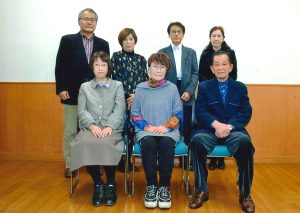
現代詩人賞 受賞のことば 河津聖恵
この度は第41回現代詩人賞に詩集『綵歌』を選んで頂き、大変光栄です。本詩集は絵をテーマとし解説に多くの頁を割いており、詩集としてかなり異例なものです。それだけに賞を授けて頂いたことは望外の喜びです。
二〇〇三年第五詩集『アリア、この夜の裸体のために』が第53回H氏賞を受賞して二十年。この間個人詩集六冊、詩論集四冊を上梓し、『綵歌』は通算で十二番目の詩集です。この二十年での大きな変化は詩論集を出したことです。受賞に背を押されて拙い詩論を書物にまとめる勇気が生まれました。あらためて感謝申し上げます。
受賞の翌年はからずも大病を患いました。身体の回復後も心はなかなか生きようとせず、二年間はまともに書くことは出来なかった。けれど命の一隅に詩への思いは失われず辛い日々を支えてくれていました。詩の言葉でしか自分は癒せない、そもそも詩は自分にとって治癒なのだと覚知し、光が少しずつ闇に差し込み始めました。
二〇〇七年から新たな詩作が始まりました。ただ心が生きるために書きました。一日一篇、三十日間書き続けた『神は外せないイヤホンを』、中上健次を手引きに紀州・熊野を回ったフィールドワーク詩集『新鹿』と『龍神』、朝鮮学校無償化除外に異議を唱える『ハッキョへの坂』、原発事故後の世界の回復を花に託した『夏の花』など。それら治癒の詩集を経て『綵歌』は生まれました。江戸中期の京都に生きた絵師、伊藤若冲もまた心の危機から生きるために描いた絵師です。若冲が鮮やかに描いた動植物から命を貰い受けるように、自分自身の欠如を絵に晒すように、言葉を紡いでいきました。
二〇一七年の冬の朝、ふと振り返って見た窓外の暗い雪景色に、若冲の絵の雪を想起し巻頭作「霏霏」を書いたのを契機に、連作は始まりました。その後生誕三百年記念の展覧会や画集で見た絵に触発され、時には京都のゆかりの地を訪れては書き続けました。若冲がただの隠遁絵師ではなく、弱き者のために権力にあらがった事実や、「動植綵絵」がじつは仏に捧げられたものだと知り、さらに共感は深まりました。若冲の生きた十八世紀と私の生きる二十一世紀は浸透しあい、三百年後の今は不思議にいきづき出しました。
連作を終えて私の詩の定義は大きく変わっています。詩とは目覚めて見る夢、創造しながら見る夢なのではないか、と。詩には過去や死者を蘇らせる力があるのではないか、とも。詩の力を信じていくならば、愛する死者と会えるのではないかとさえ思い始めています。生死を超えた詩の次元で、死者と生者が同じ夢を見ることが出来るならば、人知れず世界は根源的な変化を遂げるに違いない―受賞を励みに未知の希望に賭けていこうと思います。
[第41回現代詩人賞選考]
会員総数1008名、現代詩人賞への投票総数301票(有効票269、白票25、無効票7)投票率29・9%であった。
得票上位10詩集を会員投票による候補詩集として選考委員会へ申し送られた。
また、第1次選考会で、選考委員推薦詩集3冊が候補に加えられた。
①北畑光男『背の川』(思潮社)23票
②岡隆夫『アレクサンドロス王とイチジク』(砂子屋書房)17票
②瀬崎祐『水分れ、そして水隠れ』
(思潮社) 17票
④江口節『水差しの水』
(編集工房ノア)11票
⑤石毛拓郎『ガリバーの牛に』
(紫陽社)8票
⑤佐相憲一『サスペンス』
(文化企画アオサギ)8票
⑦相沢正一郎『テーブルのあしを
洗っている葡萄酒色の海が・・』
(砂子屋書房) 7票
⑦河津聖恵『綵歌』(ふらんす堂)7票
⑦齋藤恵美子『雪塚』(思潮社)7票
⑦中谷順子『缶蹴り』
(土曜美術社出版販売) 7票
なお、山田兼士『冥府の朝』
(澪標)7票
について、山田兼士氏は2022年
12月6日にご逝去されたため候補詩
集から除いた。
〈選考委員会推薦候補詩集〉
大橋政人『反マトリョーシカ宣言』
(思潮社)
八重洋一郎『転変・全方位クライシス』(コールサック社)
以上、全十二冊が候補詩集に決定。
【第41回現代詩人賞選考委員】
朝倉宏哉(選考委員長)、伊藤悠子、
斎藤恵子、高貝弘也、*中井ひさ子、
橋浦洋志、龍 秀美 (*は理事)
立会人 理事長 佐川亜紀
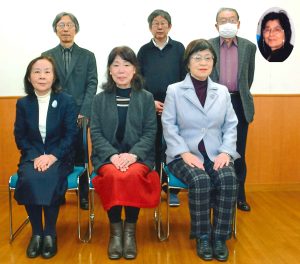
◆第二次選考委員会
3月4日午後1時より第2次選考委員会が開かれ、候補詩集より頭書の2詩集がそれぞれの賞に選ばれました。この詳細については後日発行される『現代詩2023』に掲載されます。
文責 宮崎 亨
【過去の詩集賞の紹介】
第72回H氏賞 うるし山千尋氏 詩集『ライトゲージ』
第40回現代詩人賞 倉橋健一氏 詩集『無限抱擁』
新型コロナウイルス禍の下での詩集賞の選考も、本年で三年目となった。本年は更に感染力が強いとされるオミクロン変異株の蔓延によって、都内に蔓延防止等重点措置が適用される事態においての選考であった。しかし、両賞選考委員ともにその責務をよく全うしてくださり、お陰をもって現代詩人会の主要な事業である詩集賞の受賞者を決することができた。
贈呈式は五月二九日(日)午後一時より私学会館アルカディアで開催される「日本の詩祭二〇二二」で行われます。
H氏賞・うるし山千尋
[略歴]
一九七六年鹿児島県生まれ、
宮崎大学卒。現在、鹿児島県在住。
二〇〇七年と二〇二一年に
南日本文学賞受賞。
詩集『猫を拾えば』
(二〇一二年、ジャプラン)
詩集『時間になりたい』
(二〇一六年、ジャプラン)
詩集『ライトゲージ』
(二〇二一年、七月堂)
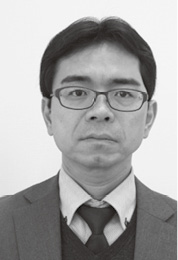
現代詩人賞・倉橋健一
[略歴]
二〇歳前後から自覚的に詩を書きはじめる。五九年「現代詩」による「第二回現代詩新人賞」佳作入選が長く詩を書くきっかけとなった。「山河」「白鯨」「火手」同人を経て、現在は「イリプス」同人。詩集に『寒い朝』『化身』『失せる故郷』など。詩論に『未了性としての人間』『深層の抒情―宮澤賢治と中原中也』『詩が円熟するとき―詩的60年代環流』『倉橋健一選集』全六巻など。評伝ノンフィクションに『辻潤への愛―小島キヨの生涯』『工匠―31人のマエストロ』など。
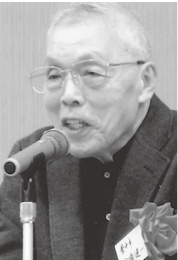
H氏賞 受賞のことば うるし山千尋
この度このような歴史ある賞を受賞することとなり、大変ありがたく、そして光栄に思います。正直なところ、ただただ驚き、まだ実感のわかない状態が続いています。
私は文学も芸術もまともに勉強したことがなく、詩を書き始めたのも二十代の終わりごろからでした。地元の新聞社が主催する文学賞に詩部門があり、それに応募するために詩を書き始めたのがきっかけでした。当時は無職だったと思います。幸いにも二年目でその賞を受賞することができましたが、新聞に掲載された自分の詩を改めて目にしたとき、これは何かが違うと感じました。「違う」というのは、自分の中に見えたはずの「詩のようなもの」と、自分のことばの中に現にある「詩のようなもの」が違う気がしたのでした。違和感といいますか、焦点の合わなさと言いますか、どこか気持の悪い〈ずれ〉のようなものが体にまとわりついて、もう一度最初からやり直そうと思いました。
まず二年かけて十篇ほど書き、中綴じの冊子を手作りしました。そして、鹿児島で出版をされていた詩人の高岡修さんへ送ったところ、それを新聞で紹介してくださいました。その解説のなかで初めて「異化」という言葉も知りました。後日、実際にお会いした際に「私のは詩でしょうか?」と尋ねると、「君のが詩だよ」と言われ、ようやくスタートラインに立てた気がしたのをおぼえています。
今回受賞した『ライトゲージ』ですが、あのとき感じた気持ちの悪い〈ずれ〉を未だ解消できてはいません。その〈ずれ〉は「私と世界のあいだにある〈ずれ〉」ではなく、「世界とことばのあいだにある〈ずれ〉」です。それを私がうまく掴むことができない、という気持ち悪さが四年かけて積み重ねられ、詩になっていったような気がします。
出版にあたっては、七月堂の皆様に大変お世話になりました。あえて文字のポイントを大きくすること、ルビをできるだけ振ることをお願いしました。百頁ほどの詩集ですが、厚い紙を使ってもらい、掌にちょうど馴染む本の厚さにしてもらいました。あまり現代詩を読んだことのない人にも読んでいただきたかったからです。
今後も変わらずにやっていこうと思います。この度は本当にありがとうございました。審査員の方々、鹿児島の詩人の方々、私を知るすべての方々へ感謝します。
詩集賞決定までの経緯
〔開票理事会〕
H氏賞と現代詩人賞の会員投票を受け、二月五日(土)早稲田奉仕園で開票理事会を開き、投票管理委員の広瀬弓、草間小鳥子(欠席・電話連絡)立ち会いのもとに開票集計が行われた。
[第72回H氏賞選考]
会員総数一〇二三名、H氏賞への投票総数三〇一票 (有効票二四九、白票四三、無効票九)、投票率二九・四%であった。
会員投票上位10冊を選ぶところ七位以下同数が多数となったため、上位6詩集を会員投票による候補詩集とした。
集計後、同会場で第一次選考会が開かれ、選考委員推薦3冊が候補作に加えられた。
①松井ひろか『十七歳、未明の接岸』
(七月堂)20票
②浦歌無子『光る背骨』
(七月堂)10票
③桑田窓『52時70分まで待って』
(思潮社)8票
③雪柳あうこ
『追伸、この先の地平より』
(土曜美術出版販売)8票
⑤篠崎フクシ『ビューグルがなる』
(土曜美術出版販売)7票
⑥長嶺幸子『Aサインバー』
(詩遊社)5票
選考委員推薦詩集
村岡由梨『眠れる花』(書肆山田)
小林坩堝『小松川叙景』(共和国)
うるし山千尋『ライトゲージ』(七月堂)
選考委員は、石下典子、伊武トーマ、清武こう、草野早苗、土屋智弘、冨岡悦子、古屋久昭(選考委員長)
立会人 担当理事宮崎亨。
3月5日(土)第二次選考委員会において受賞者の決定を行った。
現代詩人賞 受賞のことば 倉橋健一
私、日頃からわがままに暮らしているせいもあって、今回のこの賞も、正直いっていただけるとは夢にも思っていませんでした。それだけに、たいへんなおどろきとともに、どこか恥ずかしさをともなった㐂びを、ひしひしと感じております。皆さん、どうもありがとうございました。
特に選考の過程で、とおい地方にお住まいや、私よりはるかに若い卋代の方に推していただいて、これはもううれしい限りになっています。
というのも、今日の現代詩の卋界は、卋代ごと時代ごとに、どこか分断(セクト化)しているようなところがあって、私なりに、朔太郎や中也が得たような読まれ方の詩が書けないものかと、かねがね夢想する気分を持っていたからです。つまり、読み手の自由な読み方が、ときには作者の思わくを越えて詩の価値を見出していくようなあり方で、このあたりは自分の若い頃の自家薬籠型の詩作にたいする省ともなってきました。そのあたり、うまくいったかどうかは別にして、今回は「おまえの詩、けっこういけるぜ」と、卋代を越えて押していただいた感じで、そこが私には身に染みて清冽に感じられたということです。
今ひとつ、心の内に去来するのは、私は関西にずっと住んでいますので、二〇一一年に、今度のこの賞を受賞して、授賞式にかなわず亡くなった杉山平一さんの思い出があります。杉山さんにつぐ高齢者になるからです。そういえば、先年、中村稔さんの『言葉について』が受賞詩集になったときには、私は選考委員のひとりで、このときは生涯的な詩業をふくめて見るものと、私自身は思い込んでいました。その点では先にのべた恥ずかしさのなかには、少しはこんな思い込みもあるかも知れません。小野(十三郎)先生も龍生さんももらってらっしゃらない、すみませんねという気持です。
ともあれ私はハタチ前後の頃、「君は詩のほうが向いてるよ」と、とある先輩にいわれたのが、詩に専念するきっかけとなりました。すると、しばらくして知った長谷川龍生さんや金時鐘さんの背中がとてつもなく大きく、この背中が小さく見えないようについていくのだと思いました。でも年齢は私と六歳ほどしかちがわない二〇代の若者たちでした。現代詩そのものが若かったなあとしみじみ思います。
よけいことばかり述べすぎたかも知れません。ありがとうございました。
[第40回現代詩人賞選考]
会員総数一〇二三名、現代詩人賞への投票総数三〇一票(有効票二七一、白票二五、無効票五)投票率二九・四%
会員得票上位10詩集を会員投票による候補詩集として選考委員会へ申し送られた。
また、第一次選考会で、選考委員推薦詩集三冊が候補に加えられた。
①新延拳『経験の定義あるいは指の痛み』(書肆山田)15票
②川中子義勝『ふたつの世界』
(土曜美術社出版販売)14票
③草野信子『持ちもの』
(ジャンクション・ハーベスト)14票
④秋亜綺羅『十二歳の少年は十七歳になった』(思潮社)12票
⑤清岳こう『雲また雲』
(思潮社)12票
⑥中上哲夫『川の名前、その他の詩篇』(花梨社)9票
⑦和田まさ子『よろこびの日』
(思潮社)7票
⑧倉橋健一『無限抱擁』
(思潮社)6票
⑧下川敬明『暗黒と純白の讃歌』
(待望社)6票
⑧田村雅之『瑞鳥』
(砂子屋書房)6票
選考委員推薦詩集
菅啓次郎『PARADISE TEMPLE』
(Tombac)
田中庸介『ぴんくの砂袋』(思潮社)
日原正彦『はなやかな追伸』
(ふたば工房)
選考委員は、秋山公哉(委員長)、新井高子、伊藤芳博、小林稔、鈴木ユリイカ、高良勉、中島悦子
立会人 理事長 佐川亜紀
H氏賞と同じく三月五日第二次選考委員会にて受賞者の決定が行われた。厳しい条件下における選考会であったが、選考委員の皆様の献身的協力を得て両賞の決定に至った。(担当理事 宮崎亨)
【過去の詩集賞の紹介】
第71回H氏賞・第39回現代詩人賞決定(2021年3月6日)
2021年3月6日の第二次選考委員会において、次の通り2021年度の受賞詩集が決定しました。
第71回H氏賞・第39回現代詩人賞決定
◆第71回H氏賞
●受賞詩集『針葉樹林』(思潮社)
●受賞者氏名 石松(いしまつ) 佳(けい)
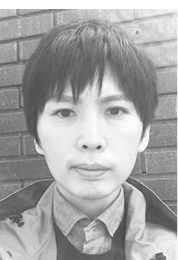
石松佳氏
●受賞者プロフィール
1984年 大分県生まれ。福岡市在住
2019年 第57回現代詩手帖賞受賞
◆第39回現代詩人賞
●受賞詩集 『サイードから風が吹いてくると』(書肆侃侃房)
●受賞者氏名 鈴木ユリイカ
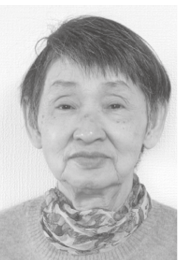
鈴木ユリイカ氏
●受賞者プロフィール
1941年 岐阜県生まれ。明治大学仏文科卒。
第1回ラ・メール賞。『MOBILE・愛』第36回H氏賞。
『海のヴァイオリンがきこえる』第3回日本詩歌
文学館賞。
H氏賞 受賞のことば 石松 佳
この度は、H氏賞を受賞することができ、驚きとともに不思議な感覚を得ています。詩を書き始めたのは、二〇一三年頃だったと記憶していますが、それから少し経ったときから犬塚堯さん(第十九回H氏賞受賞)の詩に強い憧れを抱いておりましたから、堯さんと同じ賞を自分も受けることができた僥倖について、とても不思議な心持ちがいたします。むろん今回の受賞は独力によるものでは決してなく、文学について語り合える仲間や先輩方がいたおかげであり、この場を借りて改めて皆様に感謝の意を表したいと思います。
『針葉樹林』をまとめる際に考えていたことを乱暴に要約するならば、「この世の相対性」とでも言えましょうか。画家ルネ・マグリットが、《傑作あるいは地平線の神秘》という魔術的な一幅について「世界は単一性でありながらこの単一性は分割可能なのです。このパラドクスはあまりに巨大なので、ひとつの傑作です。」と述べたように、わたしたちの生の事象は、たとえばかけがえのない個人の、一度きりの体験という絶対的単一性であると同時に、「そう言われたらそう見える」という相対的無限性に満ちた不思議なものであると考えています。この世の多くの生き物が二つの瞳で一つの事物を見ているということは、私にとって大変示唆的であり、一つの瞳で一つの事物を見るCyclopsが〈神話〉であることは、説得力があります。
また、このような矛盾に満ちた生の在り方に触れることができる詩という形式に魅せられています。そして矛盾、と言えば、詩を書く行為以上の矛盾はないような気もいたします。いわば詩作は、言語では掴みきれない事象を言語で表現する(しかない)行為ですから……。既知の言語によって、未経験の真髄に触れようとするこの行為は大いなる矛盾ですが、矛盾であるが故に私たちの生の総体という矛盾に満ちたものを垣間見ることができるのかもしれません。
さて、『針葉樹林』を読み返すと、我ながら恥ずかしいほど「風」が頻出するように思われます。いつだったか、ぼんやりと外を眺めていたときに木々が風に戦いでいる姿を見て、その自然の無思考性に惹かれ、そのままぼんやりと詩集の方向性を決めたのでした。根源的に無思考な世界の中で、詩を書くことの意義とは何か。堯さんの「たとえ油となっても/今より思慮深い力を持っているか」(「石油」)という自問を思いながら、今後も変わらず文学の勉強を愚直に続け、思考してゆきたいと思います。この度は本当にありがとうございました。
現代詩人賞 受賞のことば 鈴木ユリイカ
「見えない人々」
今回は現代詩人賞を受賞することができまして、とっても嬉しいです。
年を取ってくるとリウマチやアレルギー皮膚炎になやまされたり、家族の者の病院に付き添って行ったりして、少しばかり憂鬱なことが多いのですが、人生は良いことも沢山あって楽しいこともあります。
最近「something」という詩誌を三人で出している友達、棚沢永子さんと田島安江さんが私の二十九年間に書いた詩を何年もかかって三冊の詩集にまとめ出版してくださいました。その一冊目『サイードから風が吹いてくると』という詩集が現代詩人賞を頂くことになったのです。自分でも驚いてしまいました。
なぜ、この詩集で主に広島のこと世界のことを書いたのだろうと私は思いました。その理由を考えるのがとても難しいのです。
私は一九四一年十月三十日に岐阜市民病院で生まれましたが、生まれてから二ヶ月して、太平洋戦争が始まったのです。父は兵士としてとても長い間(五年か七年)戦地の支那と日本を行ったり来たりしていました。それから私が三歳の時、父は日本に帰って来て今度は家族で台湾に行くことになりました。私たちは三艘の船の二番目の船に乗っていました。ところが一番目の船と三番目の船はアメリカ軍の船に爆撃され海に沈んでしまったのです。私たちは一瞬の危機を逃れました。三歳から六歳まではとても暑いけれど、とても美しい島にいて、父は電力会社で仕事をしていました。
それから、もう一つこの詩にかかれた「広島」のテーマは、広島で育った二人の友達が東京に出てきていて私は六本木に何度も遊びにいったりした思い出があるからです。他には、東京から別の友達と広島に旅行したことです。あの円い天井が失くなった原爆ドウムの壁に手で触ったこともありました。何十年かして広島に詩のお話をしに行き詩を書いている友達に優しく迎えてもらいました。私は「広島」のことを考えたわけではなく、子供のように感じたのでしょう。そうして何年もかけてポツリポツリと詩を書いたのでした。
そして最も難しい何を言葉にしたらいいのか分からないことを書いたのだと思います。ただあの街に住んでいた「見えない人々」に何かを感じたのでしょう。何かとんでもないことを感じたのだと思います。
■詩集賞決定までの経緯
〔開票理事会〕
H氏賞と現代詩人賞の会員投票を受け、二月六日(土)私学会館アルカディアで開票理事会を開き、投票管理委員の斎藤菜穂子、鹿又夏実両氏の立会いのもとに開票集計が行われた。
【第71回H氏賞選考】
会員総数1047名に対し、投票総数314票、投票率30%、有効票数314票、白票数70票、無効票数0票。 会員投票による上位8冊を選ぶところ、同数票が並び、14冊となった。このため、通常設定される次点は設定しないこととした。
集計後、同会場で第一次選考会が開かれ、選考委員推薦3冊が候補作に加えられた。
①谷口鳥子『とろりと』(金雀枝社)13票
②塩嵜緑『庭園考』(書肆山田)11票
③青木由弥子『しのばず』(土曜美術社出版販売)10票
④岩下祥子『うさぎ飼い』(石風社)9票
④草間小鳥子『あの日、水の森で』(土曜美術社出版販売)9票
⑥高橋達矢『からだを洗っていると』(思潮社)6票
⑥萩野なつみ『トレモロ』(七月堂)6票
⑧神尾加代子『ちぐら とうとう』(栃木文化社)5票
⑧宿久理花子『here』(七月堂)5票
⑧富岡悦子『反暴力考』 (響文社)5票
⑧野田順子『あの夏は金色と緑と水色だった』(空とぶキリン社)5票
⑧夏目ゆき『まがたま産み』(潮流出版社)5票
⑧峯尾博子『不時着』 (思潮社)5票
⑧やまもとさいみ『夢の途中』(土曜美術社出版販売)5票
*選考委員会推薦詩集
石松佳『針葉樹林』(思潮社)
海東セラ『ドールハウス』(思潮社)
生駒正朗『春と豚』(書肆山田)
選考委員は秋亜綺羅(委員長)、長田典子、高山利三郎、塚本敏雄(理事)、松尾真由美、森水陽一郎、和田まさ子
立会人 担当理事宮崎亨。
二次選考会は3月6日(土)午後一時より早稲田奉仕園で行われ、頭書のように石松佳詩集『針葉樹林』を受賞詩集に決定した。
【第39回現代詩人賞選考】
会員総数1047人に対し、投票総数324票、投票率30・9%、有効票数322票、白票数53票、無効票数2票。 会員投票による上位8冊と次点2冊が選ばれるところ、8位同得票2名となったので投票による候補詩集を9詩集として、次点は設定しないこととした。集計後一次選考会が同会場で開かれ、選考委員推薦2冊が更に候補作に加えられた。
①岡隆夫『吉備王国盛衰の賦』(砂子屋書房)15票
②武子和幸『モイライの眼差し』(土曜美術社出版販売)14票
③長嶋南子『海馬に乗って』(空とぶキリン社)12票
④小笠原茂介『幻の白鳥』(思潮社)11票
⑤沢田敏子『一通の配達不能郵便がわたしを呼んだ』(編集工房ノア)10票
⑥池田瑛子『星表の地図』(思潮社)9票
⑦高橋次夫『祷りへの旅』(土曜美術社出版販売)7票
⑧斎藤恵子『熾火をむなうちにしずめ』(思潮社) 6票
⑧岬多可子『あかるい水になるように』(書肆山田)6票
*選考委員会推薦詩集
秋山基夫『シリウス文書』(思潮社)
鈴木ユリイカ『サイードから風が吹いてくると』(書肆侃侃房)
選考委員は水島英己(委員長)、杉本真維子、鈴木良一、鈴村和成、新延拳(理事)、三田洋、吉野令子。
立会人 山田隆昭理事長。
H氏賞選考と同様二次選考会は、3月6日(土)早稲田奉仕園で行われ、頭書のように、鈴木ユリイカ詩集『サイードから風が吹いてくると』に決定した。(担当理事 宮崎亨)
「日本の詩祭2021」はコロナ禍により中止を決定しました。第71回H氏賞・第39回現代詩人賞の表彰状と記念品の贈呈は郵送で行わせて頂きます。
なお、2020年度の第70回H氏賞受賞の髙塚謙太郎氏と第38回現代詩人賞受賞の野村喜和夫氏への表彰状と記念品の贈呈は郵送で行わせて頂きます。
【過去の詩集賞の紹介】
今年度の詩集賞決定(2020年9月12日)
第70回H氏賞 髙塚謙太郎 詩集『量』
第38回現代詩人賞 野村喜和夫 詩集『薄明のサウダージ』
非対面選考により9月12日決定される
当初3月7日に予定されていた、第二次選考委員会は新型コロナウイルス感染を避けて日延べしてきたが、最終的に非対面通信による選考という方法を取らざるを得ず、これにより9月12日をもってH氏賞が髙塚謙太郎氏、現代詩人賞が野村喜和夫氏の受賞が決定した。
贈呈式は来年5月30日(日)午後一時から、2021年度受賞者とともに、東京・市ヶ谷のアルカディア市ヶ谷で開催される「日本の詩祭2021」で行われる。
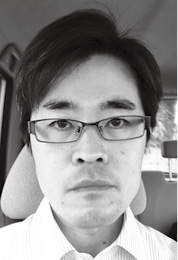 |
第70回H氏賞・髙塚謙太郎 |
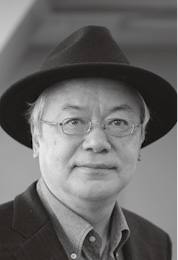 |
第38回現代詩人賞・野村喜和夫 |
受賞者の声
第70回H氏賞 髙塚謙太郎氏
歴史あるH氏賞の受賞、光栄です。歴代受賞者には敬愛する詩人たちの名も並んでおり、そのため恐縮もしています。
コロナ感染症対策を強いられるなかでの選考は、多難を極めたものだったと推測されます。選考にあたられた選考委員の皆様、運営諸事に尽くされた皆様には感謝と敬意の念を抱かざるを得ません。
一冊目の詩集を送り出してから一〇年が過ぎ、ひとつの区切りをつけたいと考えていました。つまり詩集『量』です。五冊目になります。第一詩集からこれまで、一冊一冊それぞれに強い自負と思い入れをもって制作してきました。今回の場合は、判型からレイアウトまで、版元に多くのわがままを受け入れていただき、形にしていったプロセスそのものが、結局この詩集への思い入れとなりました。これで髙塚謙太郎は終わりました。
一年近く、ほとんど詩を書くことなくぼんやりと過ごしてきました。ところが一日たりとも詩のことを考えない日はありませんでした。良くも悪くも、です。
端的にいうと、詩とは私の書くものだ、というのが近ごろ得た結論です。強い言い方をすると、私の書くものだけが詩だ、ということです。
詩は、今この瞬間にも私を通して生まれなければなりません。今回の受賞の意味をそう受け止めました。
このたびは現代詩人賞を受賞することができ、まことに光栄に存じます。詩らしきものを初めて書きつけたのが十代の終わり頃でしたから、それからはや、半世紀近くも詩を書いてきたことになります。途方もないことだと、われながら思わざるを得ません。費用対効果を考えると、もう少し何とかならなかったか、途中から実業に転じるとか、学問の道をめざすとか、せめて詩から散文へとシフトするとか…… そういう意味では、このような賞をいただけるというのは、私にとって稀少な慰めの時がもたらされるということにほかならず、選考委員の方々に深く感謝申し上げる次第です。
さて、『薄明のサウダージ』は、私の24冊目ぐらい(?)の単行本詩集ということになりますが、私ひとりの力で成り立ったものではありません。本書を成す連作のうち、「薄明のサウダージ」は画家宮崎次郎氏との、「閾をひらく」の多くは美術家北川健次氏とのコラボレーションによるものです。オクタビオ・パスは、古来詩人に重宝がられてきたインスピレーションなるものを、「人間の構成要素たる〈他者性〉の発現である」と定義し直していますが、まさにそれを実地に確かめるようなコラボレーションでした。お二人にあらためて謝意を表したいと思います。
詩集タイトルについて少し説明しておきますと、「薄明」は、私の好きな時間あるいは空間です。たそがれ、トワイライトゾーン、犬と狼のあいだ、逢魔が時。もうこれだけで、このように「薄明」の言い換えを列挙するだけで、私の言わんとするところは明らかでしょう。「サウダージ」という言葉は、グーグル検索をかけると最初に「ポルノグラフィティの曲」と出てしまいますが、もともとは「郷愁」「孤愁」を意味するポルトガル語「サウダーデ」のブラジル訛りです。その「サウダーデ」は、日本語の「もののあはれ」がそうであるように、実は「極西」ポルトガルという土地に根ざした、独特の意味の広がりと深さを持つようで、私たち日本人がそう簡単に使える言葉ではありません。とはいえ、もう少し普遍的に、たとえばこんなふうに言うことはできないでしょうか。「サウダージ」、それはちょうど、薄明の、夕暮れどきの、私たちの実存的気分に似ているかもしれない、あるいは、ちょうど人生の薄明を迎えようとしているいまの私の実存的気分に。
詩集賞決定までの経緯
〔開票理事会〕
H氏賞と現代詩人賞の会員投票を受け、2月1日(土)早稲田奉仕園で開票理事会を開き、投票管理委員の野田新五、峯尾博子両氏の立会いのもとに開票集計が行われた。
[第70回H氏賞選考]
会員総数1064名に対し、投票総数253票、投票率23・8%、有効票数198票、白票数55票、無効票数0票。会員投票による上位10冊を選ぶところ、同数票が並び、12冊となった。集計後、同会場で第一次選考会が開かれ、選考委員推薦3冊が候補作に加えられた。
①長田典子『ニューヨーク・ディグ・ダグ』(思潮社)11票
②草野理恵子『世界の終りの日』
(モノクローム・プロジェクト)6票
②野口やよい『天を吸って』(版木舎)6票
④鷹森由香『傍らの人』(ふらんす堂)5票
④宮せつ湖『雨が降りそう』(ふらんす堂)5票
⑥紺野とも『ひかりへ』(思潮社)4票
⑥作田教子 『胞衣』(思潮社)4表
⑥夏目美知子『ぎゅっとでなく、ふわっと』(編集工房ノア)4票
⑥葉山美玖『約束』(コールサック社)4票
⑥細田傳造『みちゆき』(書肆山田)4票
⑥望月遊馬『もうあの森へはいかない』(思潮社)4票
選考委員会推薦詩集
佐藤モニカ『世界は朝の』(新星出版)
髙塚謙太郎『量』(七月堂)
やまもとあつこ『つきに うたって』(空とぶキリン社)
選考委員は愛敬浩一、以倉紘平、小島きみ子、高階杞一、水嶋きょうこ、三井喬子(委員長)、八木幹夫
立会人 担当理事宮崎亨。但し二次選考以降の立会人は山田理事長に交代。
3月6日(土)に予定していた第二次選考委員会はコロナウイルス感染を避けて順延、最終的に非対面通信選考により、9月12日(土)に決定した。
【第38回現代詩人賞選考】
会員総数1064人に対し、投票総数271票、投票率25・5%、有効票数274票、白票数22票、無効票数2票。会員投票による上位8冊と次点2冊が選ばれ、集計後同会場で第一次選考会が開かれ、選考委員推薦3冊が更に候補作に加えられた。
①山田隆昭『伝令』(砂子屋書房)17票
②八木幹夫『郵便局まで』(ミッドナイトプレス)15票
③中村不二夫『鳥のうた』(土曜美術社出版販売11票=受賞辞退
④川上明日夫『無人駅』(思潮社)10票
⑤渡辺めぐみ『昼の岸』(思潮社) 9票
⑤日原正彦『降雨三十六景』(ふたば工房)9票
⑤水島英己『野の戦い、海の思い』(思潮社) 9票
⑧相沢正一郎『パウル・クレーの〈忘れっぽい天使〉をだいどころの壁にかけた』(書肆山田) 8票
次点は朝倉宏也『叫び』(砂子屋書房) 7票、三井喬子『山野さやさや』(思潮社)7票
選考委員会推薦詩集
河野俊一『ロンサーフの夜』
(土曜美術社出版販売)
野沢啓『発熱装置』(思潮社)
野村喜和夫『薄明のサウダージ』(書肆山田)
選考委員は宇佐美孝二、小笠原茂介
(委員長)、郷原宏、佐藤文夫、柴田千晶、鈴木有美子、花潜幸
立会人は黒岩会長と山田理事長。但し山田理事長自身の詩集が候補詩集になったので二次選考以降は宮崎担当理事と交代。
H氏賞選考と同様コロナウイルス感染の恐れから対面選考を行うことができず、最終的に非対面通信選考により、9月12日(土)に決定した。
選考委員の佐藤文夫さんが選考途中で入院されたが、選考終了後に逝去された。書き残された詩集評によって選考を行うことができた。感謝とともにご冥福を祈る次第です。(担当理事 宮崎亨)
【過去の詩集賞の紹介】
今年度の詩集賞決定(2019年3月3日)
●第69回H氏賞選考委員 ◎福田拓也 池田瑛子 伊藤悠子 斎藤貢 高橋英司 谷元益男 野木京子(◎印は選考委員長)
●第37回現代詩人賞選考委員 ◎細野豊 相沢正一郎 岡本勝人 小柳玲子 佐々木洋一 細見和之 若山紀子(◎印は選考委員長)
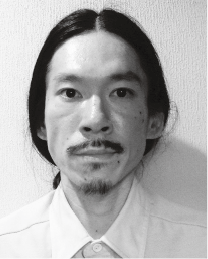 |
第69回H氏賞 [略歴] |
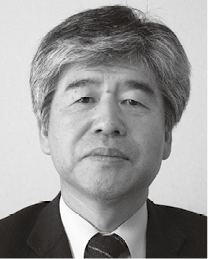 |
第37回現代詩人賞 [略歴]
一九五四年福島県生まれ。茨城大学卒。国語の教員として県立高校に勤務した。東日本大震災と原発事故が起きた二〇一一年は、事故を起こした福島第一原発から北へ約十四キロ、警戒区域となって立ち入りを禁じられた福島県南相馬市小高区の高校に勤務していた。
一九八七年に詩集『奇妙な容器』(詩学社)で、第四十回福島県文学賞。詩集には『竜宮岬』(二〇一〇年 思潮社)、『汝は、塵なれば』(二〇一三年 思潮社)など。詩誌「歴程」「白亜紀」「孔雀船」「コクリコ雛罌粟」同人。福島県現代詩人会理事長。いわき市在住。 |
*授賞式は6月2日(日) アルカディア市ヶ谷 3F 富士西で開催されます。
受賞者の声
第69回H氏賞 水下暢也氏
H氏賞を受賞して
まず記しておきたいのは、思潮社の皆さんに助けられながら『忘失について』が上梓されたことです。とりわけ私の拙い写真をもとにしながら素晴らしいデザインにしていただいた制作部の和泉紗理さん、私の意思を尊重し激励し続けてくれた編集者の出本喬巳さんに感謝を伝えたいです。また、栞の文章を書いていただいた詩人の岸田将幸さん、同じく詩人の広瀬大志さんには心から感謝しています。さらに詩集を上梓するにあたって私からの急な連絡に快く応じていただいた方、詩集を読んでことばを寄せていただいた方、さまざまな事柄のひとつひとつを思い出しながら今受賞のことばを書いています。
折角の機会を得られたので、敢えて詩人以外で幾人か名を挙げ感謝と敬意を表したいと思います。どなたも厳しいまなざしを持ちつつ柔和な感性で「ことば」を紡ぎ続けています。映画批評家の赤坂太輔さん、映画批評家で映画作家でもある葛生賢さん、長年書店員をつとめている葛生葉さん、フランス文学者で作家の鈴木創士さん、映画研究者で関西大学教授の堀潤之さん、そして映画作家の草野なつかさん。紙幅の都合もあり以上の方に限りますが、沢山の方に影響を受けてきたのを改めて実感していますし、尊敬する方からの温かいことばは大変励みになりました。
2016年5月にドイツの映画作家クラウス・ウィボニーのレトロスペクティヴ、同年11月にフランスの映画作家ジャン=クロード・ルソーのレトロスペクティヴが神戸、京都、東京を巡回するかたちで催されました。この二人の偉大な映画作家を積極的に日本に紹介したのは赤坂太輔さんで、その年のレトロスペクティヴに合わせて両監督とも来日しました。ちなみに、神戸映画資料館で上映されたクラウス・ウィボニー監督の『シラクサ』は詩の朗読についての映画といってもよく、詩人のドゥルス・グリューンバインと協同でつくられています。『シラクサ』以外にも協同でつくられた映画はあるようですが、残念ながら日本ではあまり知られていないようです。ここで短いですが、手もとにある手帳から私が書き留めた両監督のことばを書き写します。いずれも神戸で行われた上映後のトークでの発言になります。「映画も音楽のように消え去ることを本質とする」というクラウス・ウィボニー監督の発言と、「イメージをとらえるのではなく、イメージのほうから、イメージにとらわれるように」というジャン=クロード・ルソー監督の発言は木霊となって、たとえば、葉末の水滴にたまさかの振動があたるのに似て、私が紡ごうとすることばを揺すぶったのではないかと、のんきな錯覚かもしれませんが、示唆に富むこのことばと出会えた貴重な経験は忘れたくありません。これからもさまざまな詩情に触れながら、時にことばでは近づき得ないイメージとの隔たりを感じながら、それでも書くことはやめないのではないかと思っています。
最後に、現代詩手帖賞をいただいた際の「受賞のことば」と重複しますが、私の母に対する特別の感謝を明記しておきます。この思いはいつまでも変わることはありません。また私の兄にも同様の深い感謝の気持ちがあります。ありがとう。
「あの日」から
第二次選考会の当日は、H氏賞の選考委員を務めていました。やや長引いたH氏賞の選考が無事に終了した後に向かった会議室の入り口のところで「現代詩人賞」受賞を理事の方から告げられたときは、正直なところ、驚くばかりでした。やがて、少しずつ受賞の実感はこみ上げてきましたが、それは嬉しさというよりも、むしろ大きな賞への責任の重さのようなものであったと思います。
受賞が決まって、まず、脳裏に浮んだのは、わたしの恩師で英文学者、詩人の星野徹氏の在りし日の姿でした。大学に入学したばかりのわたしに、折口信夫を、柳田国男の民俗学を、そして、フレイザー卿の『金枝篇』を是非読みなさいと、わたしの詩を書く背中を前へ押してくれたからです。
わたしの最初の詩集の跋文「<宝島>探し」でも、氏は、中原中也の『ランボウ詩集』の後記を引用し、中也が<「生の原型」>と名付けた<物と名辞との、感覚と観念との、さらに客体と主体との全一的未分化の状態>こそが、詩の<宝島>を探すヒントであり、それをぜひ追い求めなさいとわたしを励ましてくれました。神話的な原型の詩的再構築をめざす、わたしの「<宝島>探し」がここから始まりました。
原発事故を考えるときも、現代文明の危機について、S・k・ランガーの言説を引用して述べた氏のことばがわたしの頭を離れませんでした。
文化は感情の様式の表現であるが、これに対して 文明は文化を基盤として発達した生活の実用的な技 術である。したがって文化は土着的なものであるが、 文明は移植可能である。この移植可能な、したがっ て、画一的な文明が、土着的な、したがって個性的な文化を圧倒し破壊しつつあるところに現代的状況がある。 (「S・k・ランガーの文明論」より)
実用的な技術にすぎない科学文明が、土着的でその土地に根付いた文化を破壊し引き剥がすという不条理。それは、原発事故に襲われて強制的にふるさとを追われた被災地の姿に重なります。高度な科学技術が、一瞬にして土地の文化や歴史を奪い去り破壊してしまう。原発事故の「あの日」から八年が経過しても、今なお、被災地は苦しめられています。その現実をわたしたちは今、どのようなことばで語ることができるのか。福島には、強制的に土地を奪われたまま住民が戻ることのできない「帰還困難区域」がまだ残されたままです。処分することもできずに、黒いフレコンバックに詰められたままの汚染土は、被災地の苦しみの暗喩そのものといってもよいかもしれません。
そして、もう一人。前詩集『汝は、塵なれば』では栞の解説文を、この詩集『夕焼け売り』では帯文を書いてくださった粟津則雄氏には深く感謝を申し上げなければなりません。わたしが住むいわき市の「草野心平記念文学館」、その館長として粟津氏の存在がわたしの身近にあったことはわたしにとってこのうえもない大きなしあわせでありました。
最後になりますが、日本現代詩人会の新藤凉子会長をはじめ、理事の皆様、選考委員の皆様、そして被災地のことばに共感を持って触れてくださった多くの皆様に、改めて深く感謝を申し上げます。有り難うございました。
第69回H氏賞候補詩集
詩集賞決定までの経緯
〔開票理事会〕
H氏賞と現代詩人賞の会員投票を受け、2月2日(土)、早稲田奉仕園で開票理事会を開き、定例の議題審議の後、投票管理委員の会員、太原千佳子、松尾真由美両氏の立ち合いのもと開票と集計が行われた。
[第69回H氏賞選考]
締切り時点の会員数は1047名で、H氏賞の投票者は306名。有効票243票、白票53票、無効票10票。投票率29.2%。集計後同会場で第1次選考委員会が開かれた。
H氏賞の会員投票による上位10冊までの詩集は次の通り。
①佐々木貴子『嘘の天ぷら』
(土曜美術社出版販売)40票
②和田まさ子『軸足をずらす』
(思潮社)9票
②高島りみこ『海を飼う』(待望社)9票
④野田順子『ただし、物体の大きさは無視できるものとする』
(モノクローム・プロジェクト)8票
⑤服部 誕『三日月をけずる』
(書肆山田)7票
⑥森田海径子『紫山』(歩行社)6票
⑦石川厚志『山の向こうに家はある』
(思潮社)5票
⑦大木潤子『私の知らない歌』
(思潮社)5票
⑦小川三郎『あかむらさき』
(七月堂)5票
⑦水下暢也『忘失について』
(思潮社)5票
以上10詩集を会員投票候補として理事会から選考委員会に申し送った(本来は8詩集であるが7位が4詩集となったため)。
選考委員は池田瑛子、伊藤悠子、齋藤 貢、高橋英司、谷元益男、野木京子、福田拓也の各氏。第1次選考委員会で福田拓也氏を選考委員長に選んだ。選考委員会推薦詩集として次の3詩集が候補に追加された。
・尾久守侑『ASAPさみしくないよ』(思潮社)
・小縞山いう『リリ毛』(思潮社)
・永方佑樹『不在都市』(思潮社)
第2次選考委員会は3月2日(土)
に早稲田奉仕園で開かれ、受賞詩集が決定した。(中本理事同席)
第37回現代詩人賞候補詩集
[第37回現代詩賞]
現代詩人賞の会員による投票の総数313票。有効票275票、白票30票、無効票8票。投票率29・9%。
上位8冊までの詩集は次の通り。
①冨長覚梁『闇の発光』(撃竹社)16票
②麻生直子『端境の海』(思潮社)15票
②北畑光男『合歓の花』(思潮社)15票
④新延 拳『虫を飼い慣らす男の告白』(思潮社)12票
⑤岡島弘子『洋裁師の恋』(思潮社)11票
⑤こたきこなみ『そして溶暗』
(思潮社)11票
⑦齋藤 貢『夕焼け売り』
(思潮社)9票
⑧沢田敏子『サ・ブ・ラ、此の岸で』
(編集工房ノア)8票
以上8詩集を会員投票候補として理事会から選考委員会に申し送った。次点は7票の上手 宰『しおり紐のしまい方』(版木舎)、高橋次夫『石の懐』(土曜美術社出版販売)、長嶋南子『家があった』(空とぶキリン社)、山本泰生『あい火抄』(歩行社)であった。
現代詩人賞の選考委員は、相沢正一郎、岡本勝人、小柳玲子、佐々木洋一、細野 豊、細見和之、若山紀子の各氏。
第1次選考委員会で細野 豊氏を選考委員長に選んだ。選考委員会推薦詩集として次の3詩集が候補に追加された。
・長嶋南子『家があった』
(空とぶキリン社)
・上手 宰『しおり紐のしまい方』
(版木舎)
・松川紀代『夢の端っこ』(思潮社)
第2次選考委員会は3月2日(土)に早稲田奉仕園で開かれ、受賞詩集が決定した。(秋理事長同席)
H氏賞と現代詩人賞の選考経過と選評は、冊子「現代詩 2019」で発表される。
◇
2019年度のH氏賞と現代詩人賞の選考に当たり、会員の皆様の投票ありがとうございました。ご協力に感謝いたします。来年度も積極的に投票して下さいますようお願いいたします。
(担当理事・中本道代)
【過去の詩集賞の紹介】
今年度の詩集賞決定(2018年3月3日)
H氏賞選考委員
選考委員長 浜田優
石田瑞穂 伊藤浩子 片岡直子
高橋玖未子 たかとう匡子 菊田守
現代詩人賞選考委員
選考委員長 野沢啓
金井雄二 國峰照子 黒岩隆
須永紀子 高岡修 塚本敏雄
*授賞式は5月27日(日) 東京・飯田橋のホテルメトロポリタン・エドモントで開催されます。
受賞者の声
第68回H氏賞 十田撓子氏
記憶の共有
「此の地にはぜひ書き残しておかなければならないことがある」と古里の長老がいつも言っていた。それは心の片隅にずっと置いてきた。私の書くことは詩の表現によって、と思い定めてからも、私を呼ぶ土地のことでないものに向かっていた頃は、今にして思えば空しく、随分時間も経ってしまった。そのまま、己のねじれを引き受けずに進むことはもうできなかった。
長老のあの言葉を耳にした土地を原点として〝敗れ去りし国〟の私であること・〝敗者〟とされてきた私たちであることーさきの世の人々が目撃してきたように、私もさだめに従ってそのねじれを引き受けた。そして詩は何が出来るかを、考えてきたように思う。
東北のむかし語りといえば「むかしあったんだト、でも今ねんだ(無い)ト」という決まり文句がある。あったけれど、見えなくなってしまったものを召喚する年寄りたちの口上に、私は物語を語る覚悟を見ていたのでは。
私も叙事を試みた。物語をすくい上げ、うたうことによって、誰かに記憶されること。それによって死者も、生きられる未来を有する。ちっぽけな私のことなど思いつめずに、むしろ「私を離れ、忘れる」と「私たちは生きられる」のだと、一つの展望が開けた。
詩は、言葉によって記憶を共有することができる。あたかも夢みるようにして。あなたが夢のなかで、誰か見知らぬ人のために涙を流していたことが一度ならずあったように。そしてそのことを、抑えがたい何か感情によって、心の片隅から不意に思い出すように。
私の詩が表わした以上の深い意味と経験を受け取ってくださる方々がいるとすれば、それは書き手である私が享受する、殆ど唯一の幸いgiftなのかもしれない。私の叙事の試み、譚詩への志向は、まだ続く予感がある。
現代詩人賞を受賞して
この度の受賞のお報せにはただ驚きあるばかりです。これまでどのような詩誌にも属さず、また特に何かの詩のグループに関わることもなく、専ら自分だけで書き綴ってきたものでしたから、驚きもご理解いただけるかと存じます。受賞には心より感謝しています。
ところで、私たちの生きているこの時代は異なる民族、国家、宗教などの相互間で、果てしない葛藤、抗争が続き、また、この地上のいたるところに多発する自然災害もすさまじいものがあります。加えて破滅の深淵へと私たちを駆り立てる現代産業社会の効率本位の価値観とそれに基づく科学技術偏重など、何処からみても希望の兆しすら窺われません。ほとんど絶望的です。
けれども幸いなことに、詩の〈ことば〉の領域ではしばしば異なる諸言語の間にあっても、その差異を超えて、謂わば地下の水脈を探り当てようとするように、何かしら普遍的な人間的真実とでも言い得るものを索め、それを表現しようとする努力がなお試みられていると思われます。詩の〈ことば〉のために私たちが争いを起し、他者を抹殺するというような事態はかつても、いまも見かけられませんし、考えられもしません。そして、そこには非常に幽かではあっても、なお相互の理解と協調にいたる希望と呼び得るものを指し示すヴェクトルが感じられるのです。
問題は他の存在や事物を対象化して、そこに自己の欲望を投影し、恣に支配したり、所有したりすることではなく、根元的な〈共在〉の感覚を取り戻すことです。それも私たち人間の共存だけではなく、大きな自然をも含めて、この世にある万物とのあるべき関係を是非とも探ってゆく必要があると思われます。そして、詩の〈ことば〉にはそれに応えるだけの経験と記憶の蓄積とが宿っていると私は信じていますが、おそらくそれはどの言語においても同じことでしょう。ですから、私は〈ことば〉を蔑ろにすることなく、むしろ〈ことば〉に訊ね、その衷に自己と世界との在るべき関係を求め、表現してゆきたいと思っています。私たちの携わる詩の領域でのみ、そのことは可能ではあるまいかと考えられますから。そして、この国においても、多くの方がたに詩が受け入れられるようになることを熱望しています。
第68回H氏賞候補詩集
詩集賞決定までの経緯
〔開票理事会〕
H氏賞と現代詩人賞の会員投票を受け、2月3日(土)、早稲田奉仕園で開票理事会を開き、定例の議題審議の後、
投票管理委員の会員、中田紀子、水嶋きょうこ両氏の立ち合いのもと開票と集計が行われた。
〔第68回H氏賞選考〕
締切り時点の会員数は1051名で、H氏賞の投票者は308名。有効票262票、白票40票、無効票6票。投票率29.3%。集計後同会場で第1次選考委員会が開かれた。
H氏賞の会員投票による上位8冊までの詩集は次の通り。
①鷲谷みどり『標本づくり』
(土曜美術社出版販売)14票
②橋本シオン『これがわたしのふつうです』(あきは書館)13票
③青木由弥子『星を産んだ日』
(土曜美術社出版販売)11票
③岡田ユアン『水天のうつろい』
(らんか社)11票
⑤こやまきお『父の八月』
(歩行社)9票
⑥服部 誕『右から二番目のキャベツ』
(書肆山田)8票
⑦松井ひろか『デラ・ロッビア・ブルーの屋根』
(モノクローム・プロジェクト)6票
⑦マーサ・ナカムラ『狸の匣』
(思潮社)6票
以上8詩集を会員投票候補として理事会から選考委員会に申し送った。次点は5票で、壱岐 梢『一粒の』(土曜美術社出版販売)、徳弘康代『音をあたためる』(思潮社)、十田撓子『銘度利加』(思潮社)であった。
選考委員は菊田守(理事)、石田瑞穂、伊藤浩子、片岡直子、高橋玖未子、たかとう匡子、浜田優の各氏。第1次選考委員会で浜田優氏を選考委員長に選んだ。選考委員会推薦詩集として次の3詩集が候補に追加された。
・市川 愛『アルツハイマー氏』
(土曜美術社出版販売)
・菅啓次郎『数と夕方』(左右社)
・十田撓子『銘度利加』(思潮社)
第2次選考委員会は3月3日(土)
に早稲田奉仕園で開かれ、受賞詩集が決定した。(中本理事同席)
第36回現代詩人賞候補詩集
〔第36回現代詩人賞〕
現代詩人賞の会員による投票の総数312票。有効票274票、白票35票、無効票3票。投票率29・7%。
上位8冊までの詩集は次の通り。
①川上明日夫『白骨草』
(編集工房ノア)18票
②北川朱実『夜明けをぜんぶ知っているよ』(思潮社)14票
②中井ひさ子『渡邊坂』
(土曜美術社出版販売)14票
④日原正彦『瞬間の王』
(ふたば工房)13票
⑤佐川亜紀『さんざめく種』
(土曜美術社出版販売)12票
⑥崔 龍源『遠い日の夢のかたちは』
(コールサック社)10票
⑦清水 茂『一面の静寂』
(舷燈社)9票
⑧秋山基夫『月光浮遊抄』
(思潮社)8票
以上8詩集を会員投票候補として理事会から選考委員会に申し送った。次点は7票の清岳こう『つらつら椿』(土曜美術社出版販売)、本田 寿『死が水草のように』(本田企画)、6票の河津聖恵『夏の花』(思潮社)、西岡寿美子『シバテンのいた村』(土曜美術社出版販売)であった。
現代詩人賞の選考委員は、塚本敏雄(理事)、金井雄二、國峰照子、黒岩隆、須永紀子、高岡修、野沢啓の各氏。
第1次選考委員会で野沢啓氏を選考委員長に選んだ。選考委員会推薦詩集として次の3詩集が候補に追加された。
・岩成達也『風の痕跡』(書肆山田)
・菊田守『蛙』(砂子屋書房)
・八重洋一郎『日毒』
(コールサック社)
第2次選考委員会は3月3日(土)に早稲田奉仕園で開かれ、受賞詩集が決定した。(秋理事長同席)
H氏賞と現代詩人賞の選考経過と選評は、冊子「2018 現代詩」で発表される。
◇
2018年度のH氏賞と現代詩人賞の選考に当たり、会員の皆様の投票ありがとうございます。ご協力に感謝いたします。来年度も積極的に投票して下さいますようお願いいたします。
(担当理事・中本道代)
H氏賞選考委員
選考委員長 浜田優
石田瑞穂 伊藤浩子 片岡直子
高橋玖未子 たかとう匡子 菊田守
現代詩人賞選考委員
選考委員長 野沢啓
金井雄二 國峰照子 黒岩隆
須永紀子 高岡修 塚本敏雄
2017年度の詩集賞決定(2017年3月4日)
*授賞式は6月18日(日) 東京・飯田橋のホテルメトロポリタン・エドモントで開催されます。
受賞者の声
第67回H氏賞 北原千代氏
このたびは、歴史あるH氏賞をいただくことになり、たいへん光栄に存じます。これまでお導き下さった皆様に、心から感謝申し上げます。
詩を書きたい気持ちが募って、ともかく詩のようなものを書き始めたのは、五〇歳を目前にした頃でした。遅いスタートをした者にこのような賞をお与えいただくとは、にわかに信じがたいのですが、お世話になった皆様が、ご自身のことのように喜んで下さるのを目の当たりにし、そのことがとてもうれしくてなりません。
わたしは、比叡山と比良山の山間の村落に育ち、中学校は分校でした。国語教師の園鈴子先生は、中学生を相手に、白秋の短歌や万葉集、源氏物語などの魅力を説いて下さいました。白秋の歌がとりわけ好きになり、「病める児はハモニカを吹き夜に入りぬ もろこし畑の黄なる月の出」などの歌を暗唱し、その色彩と音楽にうっとりとしました。当時、京都女子大の学生だった河野裕子さんが中学時代の恩師、園先生を訪ねて分校の教室に来られ、「きらきらする瞳をいつまでも持ち続けて」と、後日お手紙を下さったことが今でも忘れられません。
学生時代のほんの数年ほど、同人誌活動に参加しましたが、その後は長い休眠状態が続きました。第三詩集『繭の家』を編むにあたって、見慣れた車窓の風景から、幻想の森に入っていくようなイメージの着想を得ました。今回の受賞作『真珠川 Barroco』では、前作で得た感覚が、わたしの故郷の風景とそこで出会った人々の記憶へと移り変わりました。真珠川は架空の川ですが、わたしが身に帯びるまで知っている、村はずれの小川でもあります。
若い頃、因習に縛られた土地を離れたいとばかり願っていましたが、実はこの土地や家は、わたしが望んで得たものではなく、始めから神様が与えて下さっていたもので、今も日々育まれているのだということが、少しずつわかってきました。
遅い出発をした者を、ここまでお導き下さり、ほんとうにありがとうございました。今後の歩みもまた手探りですが、心を柔らかくし、書き続けていきたいと願っております。
たいへん意外でした。うれしく有難く存じます。
第67回H氏賞候補詩集
〔第67回H氏賞選考〕
締切り時点の会員数は1056名で、H氏賞の投票者は290名。有効票247票 白票41票 無効票2票。投票率27.5%。集計後同会場でそれぞれの第1回選考会が開かれた。
H氏賞の会員投票による上位8冊までの詩集は次の通り。
①草野理恵子『黄色の木馬/レタス』(土曜美術社出版販売)16票
②坂多螢子『こんなもん』(生き事書店)11票
③塩嵜 緑『そらのは』(ふらんす堂)10票
④為平 澪『肓目』(土曜美術社出版販売)9票
⑤北原千代『真珠川 Barroco』(思潮社)8票
⑥下地ヒロユキ『読みづらい文字』(コールサック社)7票
⑦林美佐子『発車メロディ』(詩遊社)6票
⑦大城さよみ『死の蔭にて』(本多企画)6票
以上8詩集を会員投票候補として理事会から選考委員会に申し送った。次点は5票で、伊藤浩子『未知への逸脱のために』(思潮社)、大木潤子『石の花』(思潮社)、神尾加代子『鬼のくる夜』(歩行社)、冨岡悦子『ベルリン詩篇』(思潮社)、和田まさ子『かつて孤独だったかは知らない』(思潮社)であった。
選考委員は杉本真維子、浜江順子(以上理事)岩佐なを、高柳誠、水野るり子、峯澤典子、八木忠栄の各氏。第1回委員会で、八木忠栄氏を選考委員長に。選考委員会推薦詩集として次の2詩集が追加された。
・和田まさ子『かつて孤独だったかは知らない』(思潮社)
・野崎有以『長崎まで』(思潮社)
第2回選考委員会は3月4日(土)に早稲田奉仕園で開かれ、受賞詩集が決定した。(秋理事同席)
選考経過と選評は、冊子「2017現代詩」で発表される。
第35回現代詩人賞候補詩集
〔第35回現代詩人賞選考〕
現代詩人賞の会員による投票の上位8位までの詩集は次の通り。投票総数278票 有効票238票 白票38票 無効票2票 投票率26.3%
①川中子義勝『魚の影 鳥の影』(土曜美術社出版販売)17票
②岡 隆夫『馬ぁ出せぃ』(砂子屋書房)12票
②柏木勇一『ことづて』(思潮社)12票
②草野信子『その日まで』(ジャンクション・ハーベスト)12票
⑤小松弘愛『眼のない手を合わせて』(花神社)10票
⑥大橋政人『まどさんへの質問』(思潮社)9票
⑦井川博年『夢去りぬ』(思潮社)8票
⑦瀬崎 祐『片耳の、芒』(思潮社)8票
⑦浜江順子『密室の惑星へ』(思潮社)8票
⑦原田道子『かわゆげなるもの』(思潮社)8票
以上8位以内の10詩集を会員投票候補として理事会から選考委員会に申し送った。次点はいずれも7票で、禿慶子『しゃぼん玉の時間』(砂子屋書房)、白井知子『漂う雌型』(思潮社)、田村雅之『碓氷』(砂子屋書房)の3詩集だった。
現代詩人会の選考委員は、岡島弘子、鈴木豊志夫(以上理事)安藤元雄、川島完、倉橋健一、新藤涼子、時里二郎。
第1回の選考委員会で、倉橋健一氏が選考委員長に。選考委員会推薦詩集として、次の1詩集が追加された。
・中村 稔『言葉について』(青土社)
第2回選考委員会は、H氏賞選考委員会と同じ3月4日(土)に開かれ、受賞詩集が決定した。(新延理事長同席)
選考経過と選評は、冊子「2017現代詩」で発表される。
◇
2017年度のH氏賞と現代詩人賞の選考に当たり、会員の皆様の投票ありがとうございます。御協力に感謝しております。来年度も積極的に投票されることを期待しております。
(担当理事・秋亜綺羅)
H氏賞選考委員
選考委員長・八木忠栄
岩佐なを 高柳誠 水野るり子 峯澤典子 杉本真維子 浜江順子
現代詩人賞選考委員
選考委員長・倉橋健一
安藤元雄 川島完 新藤凉子 時里二郎 岡島弘子 鈴木豊志夫
2016度の詩集賞決定(2016年3月5日)
*授賞式は6月12日(日) 東京・飯田橋のホテルメトロポリタン・エドモントで開催されます。
受賞者の声
第66回H氏賞 森本孝徳氏
小説家の保坂和志がこう書いていた。《いわゆる〈良い―悪い〉という完成度はまったく眼中にない、「行った!」とか「やった!」が私の小説の尺度だ》。屈託なげな評価軸だが、私の「書きたいもの」を書く試行や遊戯、それに伴うささやかな=けちな達成、そうしたものへの楽観的な叛意がここには見える。私が「やりたいことをやる」など、専ら予定調和な結末にしか往きつかない。ならば手仕事の盲目性と、それがもたらす発見の予見不可能に僕は賭けたい。むろんこの「盲目性」を「難読字」に集約してしまえば、僕の目はひとえに死ぬばかりだ。いまは健康のことを考えたいよ。
「H氏賞」の文字列を最初に視認したのは、現代詩文庫『続・鈴木志郎康詩集』の裏表紙に刷られた著者略歴のなかだったと思う。あの「プアプア詩」が載った同文庫の正篇には、著者が上半身裸で歩み寄る、言わずと知れたやや異様な近影が使用されているが、それゆえにか「H氏」の文字はどこか妙竹林な、いわば猥褻なものとして以後頭に残った。これに意味はない。大雨の日にだけバス通学をしていた高校生の僕は、土砂降りの神奈中のなかで著者の「終電車の風景」を読んだ。僕はこの《終電車》の人たちのように黙りたかった。黙りこくりたかった。充実した「沈黙」ではなく虚ろにただ黙り、紙を《けったり押したり》して文―字が作れればそれでよかった。ただ《こんな眺めはいいなァ》とは他人に絶対に言わせたくなかった。それだけだ。
二十一世紀初頭の世界は、紛争とテロルと核の脅威で混迷を深めるばかりです。その遠因がアメリカの十字軍になぞらえたイラク侵略戦争にあることは既に通説ですが、その背景にあるのは、国民を衆愚と侮る各国家権力者の衆愚政治です。詩芸術(文学)に政治は持ち込むべきではないとするならば、それ故にこそ、詩と国家権力とは対極の磁場に在るという理念は、詩創造の意識閾に通底し顕在してあるべきものと私は考えます。その意味で、このたび私が上梓しました詩集に実に多数の方々から共感と激励の御書翰を賜りましたことに一種の安堵感を覚えました。と同時に、詩人高村光太郎の悲痛な生涯がひとしお思い浮かんでなりませんでした。第二次大戦中の高村光太郎が、国家体制の下に、あまりにも純粋で、高潔そして誠実な人柄であったがゆえに、当時の主要な詩人を束ねて衆愚に与してしまった自責の念ゆえか、戦後日本芸術院会員への推薦を固辞したというその痛々しい心情への思いが浮かんで消えなかったのです。そして時を経た三月五日、受賞のお知らせを受けました。このことは第一に、私の詩集を候補として投票して下さった方々の賜物と深謝申し上げます。亦更に、多冊の優れた候補詩集のうちから、私がこのたび詩集を編んだ《あとがき》に記述した意を読み解いて下さり、受賞作とさだめて戴いたことについて、選考委員の方々に敬意と感謝の思いをささげます。今後とも奢ることなく、老耄の身をよろめきながら尚詩業の道程を精進して参りたいと存じます。有難うございました。
第66回H氏賞候補詩集
詩集賞決定までの経緯
[開票理事会]
H氏賞と現代詩人賞の会員投票を受け、2月6日(土)、早稲田奉仕園で開票理事会を開き、定例の議題審議の後、投票管理者の会員 新井啓子、曽我貢誠両氏の立会いで開票と集計が行われた。締切り時点の会員数は1050名で、投票者は314名 有効票260票 白票数51票 無効票3票 投票率29.9%。集計後同会場でそれぞれの第1回選考委員会が開かれた。
[第66回H氏賞選考]
会員による上位8冊までの詩集は次の通り。
①花潜幸『初めの頃であれば』(土曜 美術社出版販売)21票
②青柳俊哉『隔絶する蒼穹』(歩行社 )15票
③井上瑞貴『星々の冷却』(書肆侃侃 房)12票
④田中裕子『カナリア屋』(土曜美術 社出版販売)10票
⑤宇佐美孝二『森が棲む男』(書肆山 田)9票
⑥布川鴇『沈む永遠 始まりにむかって』(思潮社)8票
⑥長谷川忍『女坂まで』(土曜美術社出版販売)8票
⑧颯木あやこ『七番目の鉱石』(思潮 社)8票
以上8詩集を会員投票候補として理事会から選考委員会に申し送った。次点は6票で、金井雄二『朝起きてぼくは』(思潮社)であった。
選考委員は中本道代、宮崎亨(以上理事)、相沢正一郎、金堀則夫、郷原宏、高貝弘也、春木節子の各氏。
第1回委員会で郷原宏氏を選考委員長に互選。選考委員会推薦詩集として、次の3詩集が追加された。
・平田詩織『歌う人』(思潮社)
・佐藤存『対岸へと』(思潮社)
・森本孝徳『零余子回報』(思潮社)
第2回選考委員会は3月5日(土)に早稲田奉仕園で開かれ、受賞詩集が決定した。(新延理事長同席)
選考経過と選評は、冊子「2016現代詩」で発表される。
第34回現代詩人賞候補詩集
[第34回現代詩人賞選考]
会員による上位8位までの詩集は次の通り。投票総数345票 有効票306票 白票数26票 無効票3票 投票率32.9%
①尾花仙朔『晩鐘』(思潮社)32票
②新延拳『我が流刑地に』(思潮社)
18票
③丸地守『微笑む星はまだ残っているか』(土曜美術社出版販売)15票
④宇佐美孝二『森が棲む男』(書肆山田)14票
⑤財部鳥子『氷菓とカンタータ』(書肆山田)13票
⑥八木幹夫『川、海、魚等に関する個人的な省察』(砂子屋書房)11票
⑦金井雄二『朝起きてぼくは』(思潮社)9票
⑧佐久間隆史『あるはずの滝』(土曜美術社出版販売)8票
⑧布川鴇『沈む永遠 始まりにむかって』(思潮社)8票
以上8位以内9詩集を会員投票候補として理事会から選考委員会に申し送った。次点はいずれも7票で、岩佐なを『パンを』(思潮社)、清水茂『夕暮れの虹』(舷燈社)、鈴木東海子『桜まいり』(書肆山田)の3詩集だった。
現代詩人賞の選考委員は、北畑光男、斎藤正敏(以上理事)、井坂洋子、川中子義勝、季村敏夫、佐々木久春、鈴木漠の各氏。
第1回選考委員会で川中子義勝氏を選考委員長に互選。選考委員会推薦詩集として次の3詩集が追加された。
・田中清光『ことばから根源へ』(思潮社)
・岬多可子『飛びたたせなかったほうの蝶々』(書肆山田)
・清岳こう『九十九風』(思潮社)
第2回選考委員会は、H氏賞選考委員会と同じ3月5日(土)に開かれ、受賞詩集が決定した。(田村副理事長、秋担当理事同席)。
選考経過と選評は、冊子「2016現代詩」で発表される。
◇
2016年度のH氏賞と現代詩人賞の選考に当たり、会員の皆様の投票ありがとうございます。ご協力に感謝しております。今年度は前年度より投票数が減少してしまいました。次回は多数の会員が積極的に投票されることを期待しております。
(担当理事・秋亜綺羅)
H氏賞選考委員
選考委員長・廿楽順治
麻生直子 砂川公子 瀬崎祐 苗村吉昭 布川鴇 渡会やよひ
現代詩人賞選考委員
選考委員長・八木幹夫
鈴木比佐雄 高階紀一 中谷順子 丸山由美子 水田宗子 山田隆昭
2015度の詩集賞決定(2015年3月7日)
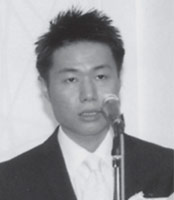 |
第65 回H氏賞 [略歴] 1983年生まれ。京都市在住。13歳までを仙台で、それ以降を東京で暮らす。2012年秋からの1年半、宇宙物理学を研究する妻に連れ添い渡米。ワシントンDCでの滞在中に『現代詩手帖』へ毎月一篇ずつ投稿した詩で、2014年、第52回現代詩手帖賞受賞。 帰国後、投稿した詩をまとめ、第一詩集『グラフィティ』を思潮社より上梓。2015年、同詩集にて第20回中原中也賞、第65回H氏賞受賞。 |
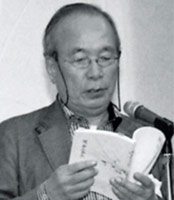 |
第33 回現代詩人賞 [略歴]
1941年新潟県見附市生まれ。日本大学芸術学部文芸科卒業。思潮社で「現代詩手帖」編集長、詩書出版に17年間従事。その後、西武百貨店スタジオ200、銀座セゾン劇場、セゾン文化財団などに勤務。詩集『きんにくの唄』『八木忠栄詩集』『こがらしの胴』『雲の縁側』他、句集『雪やまず』『身体論』、落語論『ぼくの落語ある記』『落語新時代』他。「余白句会」「かいぶつ句会」他に所属。個人誌「いちばん寒い場所」。船橋市在住。
|
*授賞式は6月7日(日) 東京・飯田橋のホテルメトロポリタン・エドモントで開催されました。
受賞者の声
第65回H氏賞 岡本啓氏
第65回H氏賞候補詩集
石下典子『うつつみ』(歩行社)
渡辺めぐみ『ルオーのキリストの涙まで』(思潮社)
秋亜綺羅『ひよこの空想力飛行ゲーム』(思潮社)
小野ちとせ『記憶の螺旋』(土曜美術社出版販売)
草野理恵子『パリンプセプト』(土曜美術社出版販売)
野田新五『月虹』(洪水企画)
広瀬弓『みずめの水玉』(思潮社)
峯尾博子『交信』(書肆山田)
相野優子『ぴかぴかにかたづいた台所になど』(ふらんす堂)
和田まさ子『なりたいわたし』(思潮社)
第33回現代詩人賞候補詩集
長嶋南子『はじめに闇があった』(思潮社)
長津功三良『影舞い』(歩行社)
原子修『原郷創造』(共同文化社)
柴田三吉『角度』(ジャンクション・ハーベスト)
中原道夫『石の言葉』(土曜美術社出版販売 )
御庄博実『燕の歌』(和光出版)
若松丈太郎『わが大地よ、ああ』(土曜美術社出版販売)
赤木三郎『よごとよるのたび』(書肆夢ゝ)
佐々木朝子『地の記憶』(樹海社)
結城文『夢の鎌』(土曜美術社出版販売)
H氏賞選考委員
選考委員長・廿楽順治
麻生直子 砂川公子 瀬崎祐 苗村吉昭 布川鴇 渡会やよひ
現代詩人賞選考委員
選考委員長・八木幹夫
鈴木比佐雄 高階紀一 中谷順子 丸山由美子 水田宗子 山田隆昭














